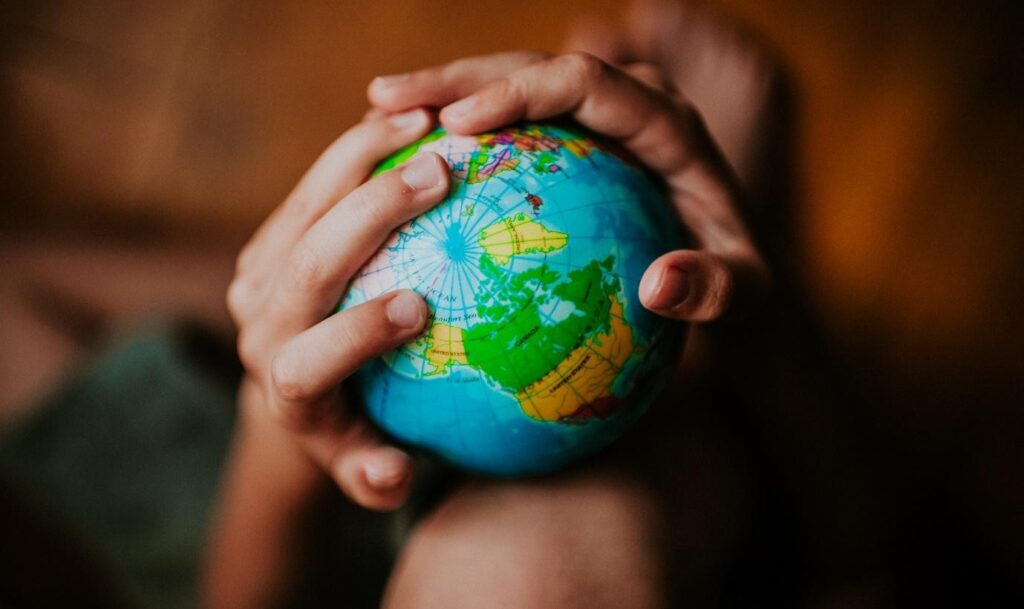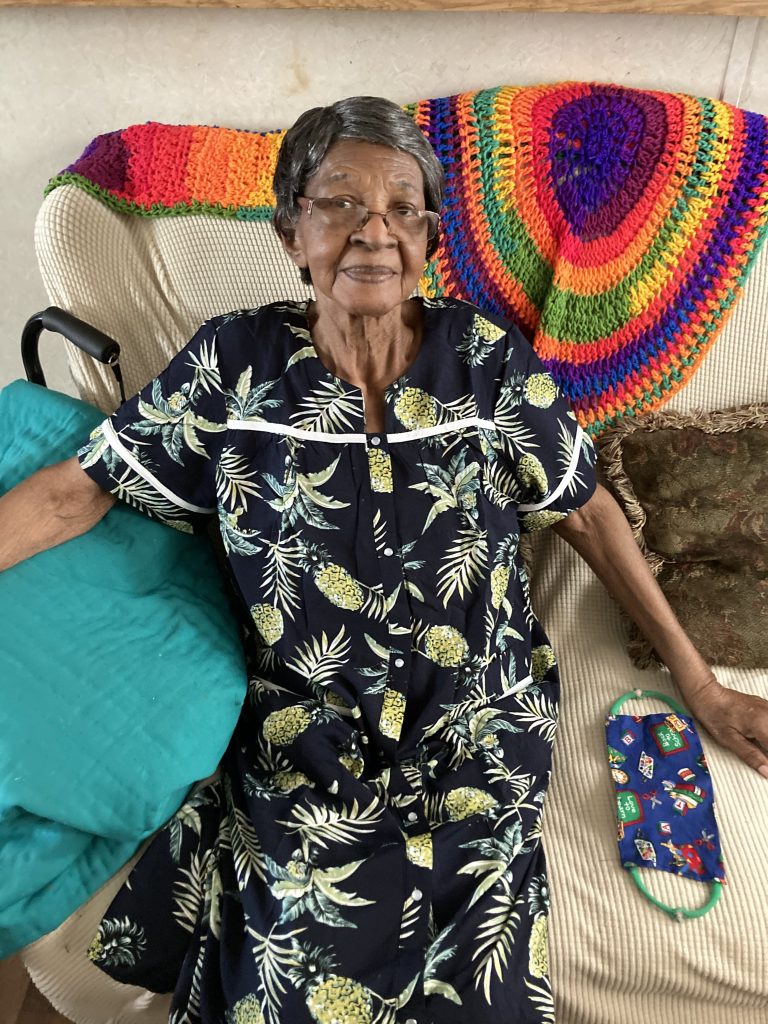If you are a caring grandchild who enjoys spending time with your grandparents you are already a “Grandchild-therapy” practitioner. When we talk about certain practices – or habits – that benefit the daily lives of people with dementia, we often find out that we are already practicing some of these treatments. We find this when we play music for people living with dementia, which has the power to bring back forgotten memories (music therapy). When we smile at people with dementia, our bodies and facial expressions can provide comfort beyond our caring words. Living with pets (pet therapy) and practicing art in a meaningful and dignified way (art therapy) can also be therapeutic for people living with dementia. We also know that staying socially, mentally and physically active is essential for a healthy and active aging. Spending time with grandchildren can be a great tool for maintaining our social and cognitive health, and help us create a good bond with another generation.
All these non-pharmacological therapeutic solutions are managed and assisted by professionals, founded on theoretical and scientific research. As family and carers, we end up using simplified versions of many of these principles in our daily acts of caring. The grandchild therapy is a strategy with demonstrable benefits, and the professionals needed for this practice are easily accessible: a grandparent, a grandchild and an intermediate generation, the parents, to manage the boundaries and responsibilities.
“Grandchild therapy” as a term is used by the neurologist Ivan Okamoto, São Paulo, who explains the positive aspects of this intergenerational relationship that works as a kind of therapy for all involved. It leaves the grandparents alert with an active mind and always in touch with issues and themes that are not part of their universe, such as seeking and watching movies for children and teenagers or playing games with different levels of complexities and new rules to be learned. This helps them renew their interests, and remember skills they haven’t used in decades, such as solving arithmetic problems when helping the grandchild to study for a test.
“The enhancement of social and family bonds, in an epidemiological study already demonstrated, is among the lifestyle changes that impact the quality of cognition of the elderly,” says Ivan Okamoto.
But its not as simple as some pleasant grandparent-grandchild playtime! In order for this grandparenting relationship to be considered a therapy, some criteria must be applied. A key element is the ability to enjoy light companionship without any major responsibilities. For the grandparents, it is more pleasant to take care of the grandchild without the pressure of important childcare responsibilities, such as giving them chores or controlling which kind of food they should have. This is where the generation in-between understands the difference in the role of grandparents and their own parental responsibilities, helping to keep the balance and providing good resources for a nice and healthy relationship.
An Australian study in The University of Melbourne has even reported that a healthy relationship between grandparents and grandchildren can benefit older peoples’ memories and delay early symptoms of the disease. The study used data from Women’s Healthy Ageing Project (WHAP) with over 100 grandmothers between enrolled in a ten year follow up. Their memory, planning and reasoning abilities were assessed using a word-memory test and the results showed that those having healthy relationship with their grandchild could remember 69% of the words, 6% more words than the grandmothers who did not have the same strong relationships.
“It is very important to measure how beneficial or harmful is the grand-parenting relationship for both grandparent and grandchild, although grandmother’s love is never too much,” Dr Okamoto explains.
However, the same study showed that grandparents who are overwhelmed with the burden of caring for their grandchildren during the entire week did not perform well. Researchers explained that the stress of the responsibility of caring for their grandchildren offset any grand-parenting benefit. “The grand-parenting can have the benefits neutralised for children when there is educational conflict between parents and grandparents. For the elderly, when they are overwhelmed and take on the role of “parents” with all the burdens. It should always be balanced,” says Dr. Okamoto.
When asked about the relationship between grandparents and grandchildren during the COVID-19 pandemic, Dr Ivan Okamoto highlights the importance of continuing to stimulate intergenerational bonds. “As far as possible, keep in touch by media (telephone, computer…), and adapt / promote activities that have the purpose of pleasing the other (arts, drawings, illustrations, cooking).” Caring for grandchildren should always be a pleasure for mutual admiration and a friendship bond to be created. Fostering a good relationship with grandparents throughout our lives can bring a far greater benefit than we ever imagined. Besides supporting cognitive health we are also building our emotional reserves.
The simple act of being with the ones we love is an important way of caring. As they say; “Love is a powerful thing”.

Fernando Aguzzoli is a Brazilian journalist and Atlantic Fellows for Equity in Brain Health at the Global Brain Health Institute in Trinity College Dublin. He is also a member of the Brazillian Geriatric and Gerontology Society, a director-member of Brazillian Alzheimer Association and author of a series of books addressing Alzheimer’s Disease, vulnerability, aging, death, and other relevant subjects, aimed at both adults and children.
https://www.gbhi.org/fernando-aguzzoli-peres
email: fernando.peres@gbhi.org




